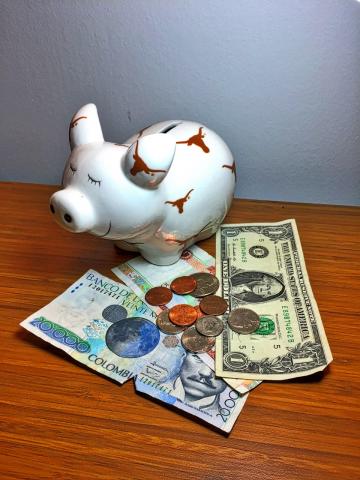Do We Have an Obligation to Give?
Feb 29,2016
Donating to charity is a common practice in the United States. However, it is not universal, as many people do not donate money. Is it wrong not to give to charities if you can afford it? Do we have an obligation to give to the needy?
Peter Singer, a philosopher known for his book “The Life You Can Save”, amongst many others, thinks that we are indeed obligated to give. I think it is safe to assume that everyone agrees that suffering from things like lack of food, shelter, and medical care are bad. Singer argues that if it is within your power to prevent something bad like this from happening without sacrificing something nearly as important, it is morally wrong not to do so. Here is where charities come in: they give you the power to donate to them to prevent suffering and death from lack of food, shelter, medical care, and the like. Therefore, according to Singer, if you are not donating to charities to help end these sufferings, you are being immoral. You have an ethical obligation to donate money if you are able to.
This may seem like an extremist stance on the issue of whether or not we should give, but when you consider the severe suffering that many people face, it makes sense. Desperate times call for desperate measures, as they say. Take, for instance, a look at the impoverished global south, where many of the world’s poorest people live. A significant percentage of people in the region live without access to clean water, lack a proper education, live in poorly built homes, are short on food, and are unable to escape debt. Extreme poverty is a serious problem in our world, yet it is only one of many issues that charities aim to solve.
One common objection to the ethical obligation is that since we work hard to earn our money we should be able to spend it as we wish. What if we don’t want to give any of it away to charity? We should have the freedom to choose what we want to do with our hard earned money.
What if you are, whether intentionally or unintentionally, responsible for the poverty of other people? Wouldn’t it be fair to say that you owe them at least a little in donations? Well, chances are that you consume products from a company that buys its produce from corrupt governments in Africa. For example, American oil companies purchase barrels and barrels of oil from Teodoro Obiang, the dictator of Equatorial Guinea. While his people suffer in extreme poverty, he enjoys the wealth of his oil sales. Whether its oil, minerals, or other raw materials, we use many products that come from governments that take advantage of their people, and thus we are partially at fault for fueling this injustice. Thus, it can be said that we are in part responsible and liable for the poverty of others.
Furthermore, do you really deserve the money you earn more than the needy? Think about this: you are lucky to be in such an amazing country where anyone can become successful. You are lucky to be healthy. You are lucky to have running water and to be enjoying an education. Yes, you may have worked very hard to be able to have some of these things. However, you could have been born in a country where you didn’t have access to an education, or developed a debilitating disease that left you crippled. You could have suffered some sort of unfortunate circumstance, but chances also are that you didn’t, or haven’t yet. You were fortuitously saved from suffering, while others unfortunately have not, and are stuck needing help as a result. Wouldn’t it be moral to give to those who by chance are less fortunate than us, who may deserve our money just as much as we do?
Another common objection is that we have an obligation to serve our kin over strangers. It is immoral to spend your money on someone in an impoverished town in Angola as opposed to your kin, such as your own child. The same applies for your own self. It is not exactly practical to spend money on charity and then have none left for yourself. You need to pay your bills and have a decent living. At what point are you giving away too much money?
I believe a good response to this objection would be that you should still use your money on your kin and self, but also save a little for others. While donating to those in need is indeed ethical, giving away too much is impractical. Use as much as money you are comfortable giving away in accordance to your situation.
We are all humans trying to live happily together. Let’s help each other out. Even if you don’t agree with the idea that we have an obligation to give, I encourage you to find a charity you’re passionate about and to donate to.
Singer, Peter. 2009. The Life You Can Save. New York: Random House, 2009. Print.






